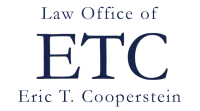The New Jersey Court of Appeals has reversed the decision discussed in this article, finding that the attorney-client privilege trumps employer policy.
 It is probably fair to say that most lawyers have grown accustomed to the convenience of emailing clients. Less disruptive than phone calls, more efficient, creates documentation of conversations—hard to believe anyone could ever practice law without email.
It is probably fair to say that most lawyers have grown accustomed to the convenience of emailing clients. Less disruptive than phone calls, more efficient, creates documentation of conversations—hard to believe anyone could ever practice law without email.
From an ethics perspective, there is generally no problem sending confidential or privileged communications through cyberspace; several ethics authorities (including the ABA) have said that email does not even need to be encrypted. Although one has to be careful about inadvertently sending a confidential email to the wrong person, that problem is created by the sender, not by email as a communication tool.
Work Zones. There has been a growing awareness—and a line of cases—about the risks of sending privileged emails back and forth with clients who are using their employer-provided email accounts.
Depending on how diligent the employer is about announcing and reminding its employees of its policies, an employer can successfully decree that anything done on the employer’s computer (including laptops) is subject to review by the employer and carries no expectation of privacy. As noted in a previous post, that can apply to otherwise confidential and privileged emails between an employee and his or her lawyer.
Web-based emails may not be safe. A recent New Jersey state district court decision, Stengart v. Loving Care Agency, Inc. (PDF link), took this principal one nasty step further. The court said that not only can the privilege be waived for emails sent using the employer’s email program and computers, but it can also be waived for emails sent through a web-based email program while using the employer’s computer. The employee had been emailing her lawyer using a Yahoo! account, which she accessed when using her company laptop. After the employee quit, the company imaged the laptop’s hard drive, and later found temporary internet files reflecting her emails. The court followed the reasoning of a very similar federal district court decision.
If this ruling remains intact and is followed by other courts, attorneys could be significantly curtailed in their ability to communicate with clients during the work day—or at all. Some clients use their work desktop or laptop as their only computer. And if the rule applies to employer computers, I cannot see why it would not apply to Blackberrys and other email-enabled mobile devices provided by the employer. Essentially, to communicate with a lawyer during the work day, an employee would need to either bring his or her own computer to work or have a separate mobile device for their own email account.
It seems pretty clear that the highest risk for these types of unexpected privilege waivers will come in employment disputes, where the employer has a direct interest in getting as much information about the employee as it can. But one could easily envision situations in which a small employer in a small town decides to help out his buddy in his marriage dissolution by combing through the computer and emails of his buddy’s spouse to see what they can dredge up.
Of course, a rule like this need not act as a total bar on emailing clients at work but lawyers should have a heightened awareness of the privacy (or lack thereof) that will be accorded to emails that need to be kept confidential, such as settlement discussions, case strategies, discussions of client wrongdoing, etc. In some situations, lawyers may have to forsake email in favor of—gasp!—the telephone!
Emailing clients at work may imperil privilege is a post from the law firm marketing blog, Lawyerist.com
Related posts:
- Emailing a Client at Work May Invalidate the Attorney-Client Privilege
- Prevent Clients from Waiving the Attorney-Client Privilege
- Separate Business from Personal on Your Work Computer

